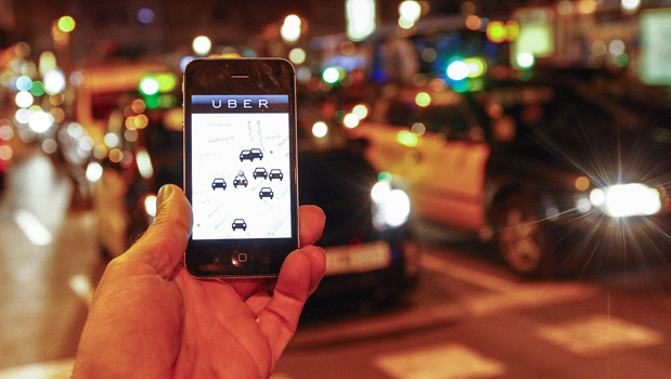
Ride-sharing giant Uber is seeking further changes to New Zealand laws for taxi services, saying that reforms before Parliament do not go far enough.
The company is understood to be lobbying Transport Minister Simon Bridges to amend a law which would require it to collect logbooks from its drivers or present vehicles for inspection at short notice.
The clause is part of reforms which are expected to return to Parliament soon, and will bring taxis, shuttles, private hire vehicles, and dial-a-driver services into a single category.
The law changes already make significant concessions to companies like Uber, by making it easier for drivers to get the required background and compliance checks and by scrapping safety requirements such as in-taxi cameras.
A Parliamentary committee made further recommendations earlier this month.
An Uber spokesman said the company welcomed changes which would make it cheaper and quicker for drivers to get accreditation.
The spokesman also noted that not all of Uber's concerns had been addressed, and it would be working with the Government to "resolve these issues ... as soon as possible".
Uber said that as it stands, the legislation failed to distinguish between traditional taxi companies, or "operators", and "facilitators" like Uber which simply matched up drivers with passengers.
It would require Uber to present vehicles for inspection "at a moment's notice", despite the fact it did not own or operate the cars. It would also require the company to keep fuel receipts and collect logbooks from its 4000 drivers - something it described as "an unfeasible administrative burden".
The company's concerns further highlight the Government's difficulties in regulating new technologies, and the tension between new and old businesses.
The reforms have already angered traditional taxi companies because they remove requirements for drivers to pass area knowledge and English language tests.
Blue Bubble taxis, the country's largest taxi group, said the changes also put passengers and drivers at risk by getting rid of a requirement for CCTV cameras in small passenger vehicles - an initiative which was introduced in 2011 after the deaths of two taxi drivers.
The company's chief executive Bob Wilkinson said there was nothing to stop unregistered drivers from fraudulently using a registered Uber drivers' account, and alleged this was already taking place.
That was rejected by Uber today. The company said it now carried out random ID checks on its drivers. The drivers were required to send a "selfie" through the Uber app, which was compared to a file photo.
"If the two photos don't match, the account is temporarily blocked while we look into the situation," the spokesman said.
The Government has previously said language and area knowledge tests had been made redundant by GPS technology.
The reforms were unanimously supported in Parliament at the first reading.
Take your Radio, Podcasts and Music with you









